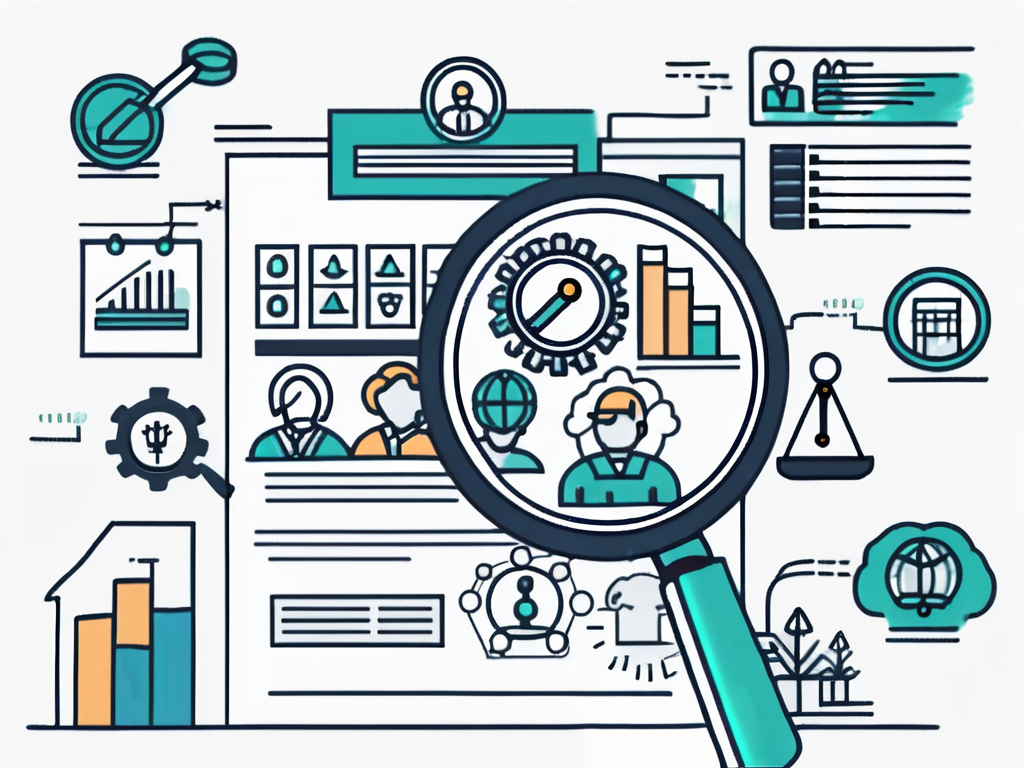A labor audit conducted by the New York State Department of Labor can be a daunting process for any employer. Understanding the purpose of a labor audit and the key areas of focus during the audit can help you better prepare and navigate the process. In this article, we will discuss the steps you should take to prepare for a labor audit, how to navigate the audit process, and the actions you should take post-audit to maintain compliance and prepare for future audits.
Understanding the Purpose of a Labor Audit
A labor audit is an investigation conducted by the New York State Department of Labor to ensure that employers are complying with labor laws and regulations. The purpose of the auditors is to protect workers’ rights and ensure that employers are providing a safe and fair work environment.

Employers should be aware that labor audits are not conducted randomly; they are often triggered by complaints from employees, former employees, or even competitors. These audits serve as a crucial tool in maintaining a level playing field for businesses and ensuring that all workers are treated fairly and in accordance with the law.
The Role of the New York State Department of Labor
The New York State Department of Labor is responsible for enforcing labor laws and regulations in the state. They conduct audits to assess employers’ compliance with various labor laws, such as wage and hour laws, workplace safety regulations, and employee classification.
It is important for employers to cooperate fully with labor auditors and provide all requested documentation in a timely manner. Failure to comply with the audit process can result in penalties, fines, or even legal action. By working proactively with auditors, employers can demonstrate their commitment to upholding labor standards and fostering a positive work environment for their employees.
Key Areas of Focus During a Labor Audit
During a labor audit, the auditors typically focus on several key areas to ensure compliance. These areas may include employee classification, minimum wage and overtime requirements, payroll records, workers’ compensation, and workplace safety procedures.
Employers should conduct regular internal audits to identify and address any potential compliance issues before an official labor audit takes place. By staying proactive and vigilant in their adherence to labor laws, employers can avoid costly penalties and legal disputes, while also fostering a culture of transparency and fairness within their organizations.
Pre-Audit Preparation Steps
Preparing for a labor audit involves several important steps to ensure that you are ready for the audit process. Taking proactive measures can help streamline the audit process and mitigate any potential issues that may arise.

One crucial aspect of pre-audit preparation is conducting a thorough review of your employment records. This involves meticulously examining employee files, payroll records, timekeeping systems, and any other pertinent documentation. By ensuring that all records are accurate and up to date, you can demonstrate compliance with labor laws and regulations.
Reviewing Your Employment Records
Prior to the audit, it is crucial to review your employment records to ensure they are accurate and up to date. This includes reviewing employee files, payroll records, timekeeping systems, and any other relevant documentation. Any discrepancies or issues should be addressed and resolved before the audit.
Additionally, it is essential to delve deeper into your employment records to verify that all required information is present. This includes confirming that employee classifications are correct, wages are accurately calculated, and all necessary documentation is on file. By conducting a comprehensive review, you can identify and rectify any potential compliance issues proactively.
Ensuring Compliance with Labor Laws
It is crucial to ensure that your business is complying with all relevant labor laws and regulations. This may include reviewing your employee classification practices, ensuring you are paying minimum wage and overtime correctly, and maintaining proper records of employee hours worked.
Moreover, staying abreast of any recent changes to labor laws is imperative to ensure ongoing compliance. By regularly monitoring updates and amendments to legislation, you can adapt your practices accordingly and avoid potential penalties or fines during the audit process.
Preparing Your Team for the Audit
Preparing your team for the audit is essential to ensure a smooth process. This may involve training your employees on labor laws and regulations, educating them on the audit process and their rights during the audit, and designating a point person to communicate with the auditors.
Furthermore, fostering a culture of compliance within your organization can help instill a sense of responsibility and accountability among employees. By emphasizing the importance of adherence to labor laws and regulations, you can create a cohesive team that is well-prepared to navigate the audit process effectively.
Navigating the Audit Process
The audit process can be intimidating, but with adequate preparation, you can navigate it effectively. Understanding the key components of an audit and being proactive in your approach can help alleviate some of the stress associated with the process.
One important aspect of preparing for an audit is ensuring that all relevant documentation and records are organized and easily accessible. This can streamline the audit process and demonstrate to auditors that your organization takes compliance seriously.
What to Expect During the Audit
During the audit, the auditors will typically conduct interviews, review documents and records, and inspect the workplace. It is important to cooperate fully with the auditors, provide them with the requested information, and answer their questions truthfully. By being transparent and forthcoming, you can help build a positive rapport with the auditors and facilitate a smoother audit process.
Furthermore, it is essential to familiarize yourself with the audit scope and objectives to ensure that you are prepared to address any areas of concern that may arise during the audit. By proactively identifying potential issues and addressing them in advance, you can demonstrate your commitment to compliance and mitigate any potential risks.
Communicating Effectively with the Auditor
Effective communication with the auditor is key to a successful audit process. Be responsive to their requests, maintain open lines of communication, and clarify any questions or concerns they may have. Building a strong relationship with the auditors can help foster a collaborative environment and facilitate a more productive audit experience.
Additionally, it is important to keep detailed records of all communications with the auditors, including any agreements reached or action plans developed. This documentation can serve as a valuable reference point throughout the audit process and help ensure that all parties are on the same page regarding expectations and next steps.
Responding to Audit Findings
After the audit, you may receive findings or recommendations from the auditors. It is important to address any identified issues promptly and implement any necessary changes to ensure compliance. By taking proactive steps to remediate any deficiencies identified during the audit, you can demonstrate your commitment to continuous improvement and regulatory adherence.
Furthermore, it is advisable to conduct a thorough review of the audit findings with key stakeholders within your organization to ensure that everyone is aligned on the necessary corrective actions. By involving relevant team members in the remediation process, you can leverage their experience and insights to develop comprehensive solutions that address the root causes of any compliance issues.
Post-Audit Actions
After the audit, there are several actions you should take to maintain compliance and prepare for future audits. It’s not just about checking off the boxes; it’s about truly understanding the importance of compliance and taking the necessary steps to ensure your business operates ethically and within the boundaries of the law.

Implementing Changes Based on Audit Results
If the audit identified any non-compliance issues, it is crucial to implement the necessary changes to address these issues. This goes beyond simply making a few tweaks here and there. It requires a comprehensive approach that involves updating your policies and procedures, providing additional training to your employees, and making structural changes to your workplace if needed.
By taking the time to thoroughly analyze the audit results and understand the root causes of any non-compliance issues, you can develop targeted solutions that will not only address the immediate concerns but also prevent similar issues from arising in the future. This proactive approach will not only help you maintain compliance but also improve the overall efficiency and effectiveness of your operations.
Maintaining Compliance Post-Audit
Compliance with labor laws and regulations should be an ongoing effort. It is not a one-time task that you can simply check off your to-do list and forget about. It requires continuous vigilance and a commitment to staying up-to-date with the ever-evolving landscape of labor laws.
Regularly reviewing and updating your policies and procedures is essential to ensure that they align with the latest legal requirements. Additionally, proper record-keeping is crucial to demonstrate your compliance in the event of future audits. By maintaining accurate and organized records, you can easily provide the necessary documentation and evidence to support your compliance efforts.
Furthermore, staying informed about any changes in labor laws that may affect your business is vital. This can be achieved through subscribing to industry newsletters, attending relevant seminars or webinars, and seeking professional advice when needed. By staying proactive and well-informed, you can adapt your practices accordingly and avoid any compliance pitfalls.
Preparing for Future Audits
Being prepared for future audits is not just about having your paperwork in order. It’s about having a comprehensive understanding of your employment records and practices, and being able to confidently demonstrate your compliance to auditors.
Conducting internal audits on a regular basis can help you identify any potential compliance issues before they become major problems. This proactive approach allows you to address any concerns and make necessary adjustments in a timely manner. Seeking legal guidance can also provide you with valuable insights and ensure that you are taking all the necessary steps to maintain compliance.
Remember, the audit process is not something to be feared or avoided. It is an opportunity to showcase your commitment to compliance and to improve your business practices. By following these guidelines and taking proactive steps, you can navigate the audit process with confidence and ensure a smooth process for your business


